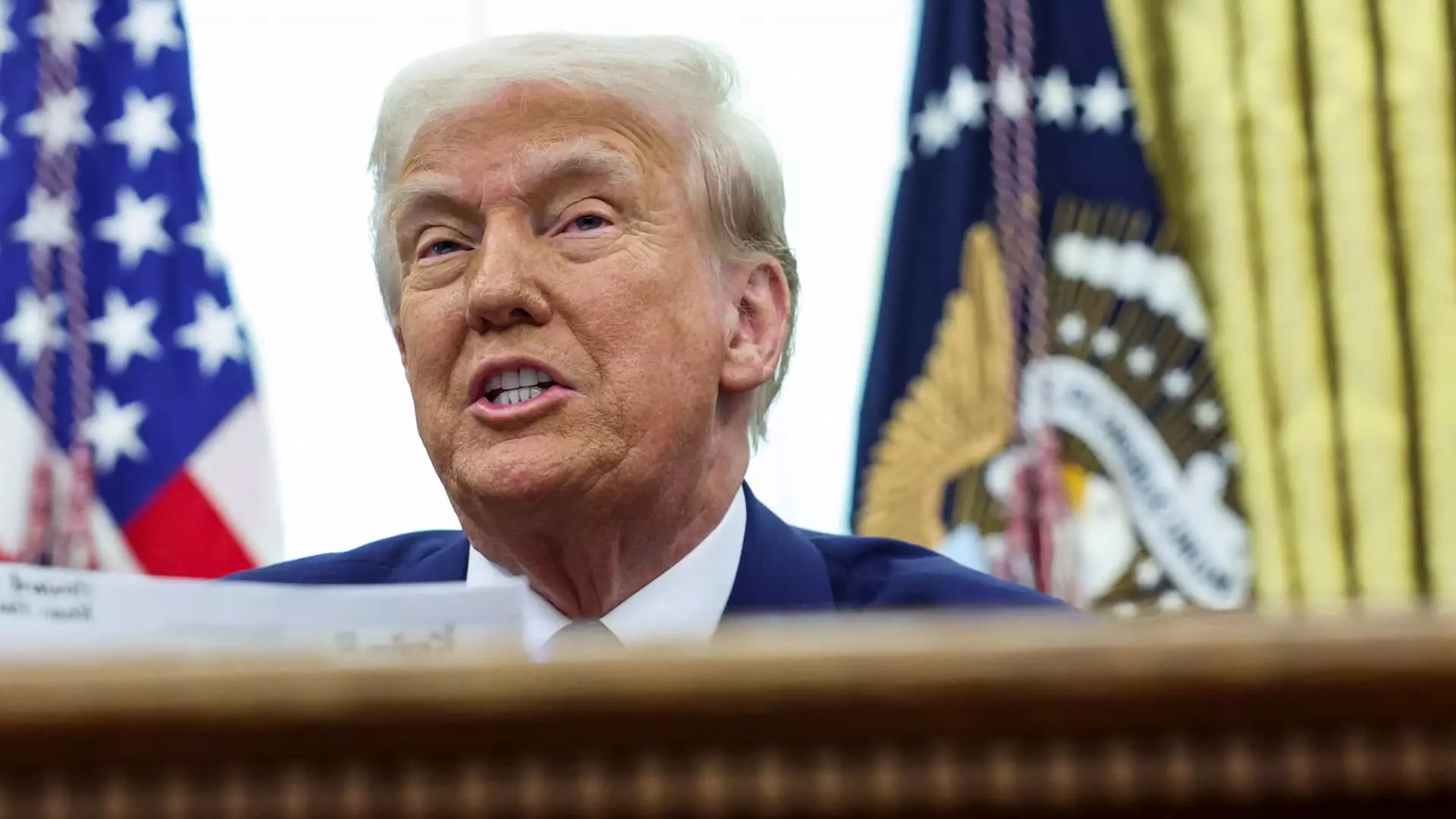On Thursday, defense stocks experienced a significant downturn after President Donald Trump suggested a steep potential reduction in U.S. defense spending. His statements, made during a discussion at the White House, proposed that military expenditures could be halved in the future. This declaration sparked immediate concern among investors, leading to a ripple effect across the defense sector. Prominent companies such as Lockheed Martin, Northrop Grumman, and General Dynamics saw their stock prices decrease substantially, illustrating the sensitive nature of defense investments in relation to political rhetoric.
Trump’s remarks were framed within the context of a broader dialogue about international relations, specifically concerning China and Russia. He conveyed his intention to engage in talks with both nations about reducing military expenditures, hinting at a strategic shift in U.S. defense policy. “When things settle down,” he stated, the high military spending could be redirected towards other initiatives. This notion of a potential budget cut, particularly one as drastic as halving the military budget, raised eyebrows and led to an immediate reassessment of the defense industry’s long-term viability among investors.
Throughout his political career, Trump has sent conflicting signals regarding military spending priorities. While he has implemented measures aimed at efficiency in government spending and has been vocal about the necessity for a robust military presence, his recent statements suggest a potential pivot away from high defense budgets. Such inconsistency creates uncertainty for stakeholders who rely on predictable government contracts and stable military funding. As TD Cowen policy analyst Roman Schweizer pointed out, investors currently face confusion stemming from these varied signals concerning defense expenditure.
The implications of Trump’s statements extend beyond one day’s stock performance. For defense contractors, the possibility of budget cuts could necessitate significant shifts in their strategic planning and future investment decisions. Historically, defense spending has been a key driver of revenue for these firms, and any potential reductions could lead to scaled-back operations or job losses within the industry. As such, the companies involved may need to diversify their portfolios or adapt their business models to mitigate impending risks associated with fluctuating defense budgets.
The uncertainty surrounding U.S. defense spending as a result of Trump’s comments reflects a broader trend of unpredictability in government fiscal policy. Investors in the defense sector will need to remain vigilant and adaptive as they navigate the evolving landscape. Ultimately, the future of military expenditure hinges not only on Trump’s proposals but also on the broader geopolitical climate and forthcoming negotiations with other major powers. As the situation unfolds, stakeholders will likely be keeping a close eye on subsequent developments and the actual impact on defense stocks.

Leave a Reply